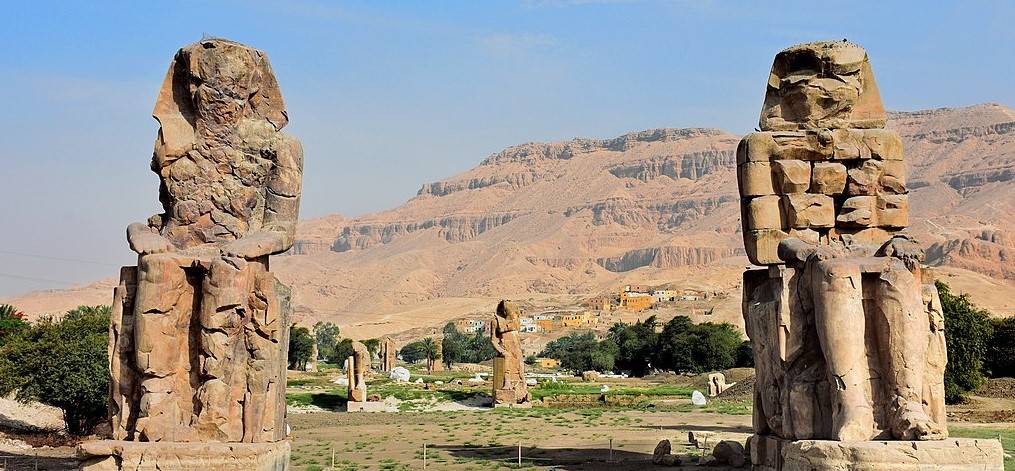Greece in Egypt and Egypt in Greece, from Homer to Rome and Byzantium

About the project
Graeco-Aegyptiaca is a collaborative initiative by colleagues in the fields of Egyptology and Classics based in Hungary and the United Kingdom. We hope the project will grow into an international network bringing together researchers in Europe and across the world who are interested in the history of cultural interaction between Egyptians and Greeks from the very beginning to the Byzantine period.
The initial impetus for this project came from a small collective of scholars in the UCL Department of Greek and Latin in London and the Palladion, a community-focused Classics project based in Budapest. As a mix of Hellenists and Egyptologists, and of experts on texts and material culture, we aim to break down the disciplinary boundaries that have stifled progress in this area for far too long, stimulating discussion and creating a forum for sharing questions and ideas.
Who we are
Peter Agócs is a lecturer in Classics specialising in Archaic and Classical Greek poetry at UCL; Árpád M. Nagy is a professor of Classical archaeology at the University of Pécs; and Kata Endreffy is a lecturer in Egyptology at Eötvös Loránd University, Budapest. Besides being active in Palladion, both the latter have extensive museum experience as former directors of the Classical Collection in the Budapest Museum of Fine Arts.
Programme November 2023 - June 2024
In the autumn of 2023 we will be continuing our online Graeco-Aegyptiaca seminar inaugurated in January 2022. The series will consist of 40-minute papers given monthly by established scholars in the field of Egyptian and Gr
- November 28, 2023. 17:00 (CET; 16:00 GMT). Richard Hunter (University of Cambridge), ‘Penultimate thoughts: choliambic verse in Graeco-Roman Egypt and beyond.’
- January 23, 2024. 17:00 (CET; 16:00 GMT). Hans van Wees (University College London), ‘Greek soldiers in Saite Egypt: myths and realities’
- February 27, 2024. 17:00 (CET; 16:00 GMT). Svenja Nagel (Universität Heidelberg), ‘Erotic Spells in the Demotic and Greek Magical Papyri: Ritual Techniques and Cultural Traditions’
- March 26, 2024. 17:00 (CET; 16:00 GMT). Ian Moyer (University of Michigan), ‘Deliberating in the open: the public areas of the Ptolemaic Egyptian temple as sites of politics and law’
- April 30, 2024. 17:00 (CET; 16:00 BST). Caitlín Barrett (Cornell University), title and abstract to be announced.
- May 21, 2024. 17:00 (CET; 16:00 BST). Eva Mol (University of York), title and abstract to be announced.
Please contact the organisers if you would be interested in giving a paper. We hope particularly to emphasise new work and work in progress. We in the Graeco-Aegyptiaca collective look forward to your participation, your ideas and enthusiasm, and to working together on projects of importance and interest to us all!
Video Archive
If you are interested in watching the video recordings of our lectures and discussions, please visit the Palladion website video archive.
Programme for 2022-23
- January 25, 2022. 17:00 (CET; 16:00 GMT). Véronique Dasen (Université de Fribourg), ‘Visual bilingualism in Graeco-Egyptian amulet gems.’
- February 22, 2022. 17:00 (CET; 16:00 GMT). Joachim F. Quack (Universität Heidelberg), ‘Demotic Egyptian traditions of the war of the gods and giants’.
- March 22, 2022. 17:00 (CET; 16:00 GMT). Marianne Bergmann (Universität Göttingen), ‘Diocletian’s porphyry workshop. New images for the Tetrarchic rulers made in Egypt and the role of local craftsmanship in their conception.’
- April 26, 2022. 17:00 (CET; 16:00 GMT). Cäcilia Fluck (Staatliche Museen zu Berlin), ‘Akhmîm-Panopolis – City of the weavers from Late Antiquity to the Arab Middle Ages’
- May 24, 2022. 17:00 (CEST; 16:00 BST). Ian Rutherford (University of Reading), 'Theogonies and Theomachies in Egypt, Greece and Elsewhere. Comparisons, Connections and Speculations'.
- June 28, 2022. 17:00 (CEST; 16:00 BST). Marina Escolano-Poveda (University of Manchester), ‘The interactions of Egyptian- and Greek-language astronomy: new sources and open questions.’
- October 25, 2022. 17:00 (CET; 16:00 GMT). Kata Endreffy (The Palladion – Eötvös Loránd University), ‘Seeing double: visualizing creation on Graeco-Egyptian stone dishes’
- November 29, 2022. 17:00 (CET; 16:00 GMT). Vinciane Pirenne-Delforge (Collège de France, FNRS), ‘Herodotus as an historian of religions and polytheism: the Egyptian matrix’
- January 31, 2023. 17:00 (CET; 16:00 GMT). Tamar Hodos (University of Bristol), ‘Eggstraordinary Objects: Ostrich Eggs as Luxury Items in the Ancient Mediterranean’
- February 28, 2023. 17:00 (CET; 16:00 GMT). Raquel Martín-Hernández (Universidad Complutense de Madrid): 'Composing magical formularies in Late Antique Egypt.'
- March 28, 2023. 17:00 (CET; 16:00 BST). John Tait (University College London), ‘Demotic narrative and emotions’
- April 25, 2023. 17:00 (CET; 16:00 BST). Carolina López-Ruiz (University of Chicago), ‘Egyptian Herakles and Syrian Aphrodite? Disentangling perceptions of Phoenician art and religion in the Greek tradition’
- May 30, 2023. 17:00 (CET; 16:00 BST). Lindsey Mazurek (Indiana University, Bloomington), ‘Imagining a Greek Home for an Egyptian Goddess: Time, Landscape, and Architecture in Greek Sanctuaries to Isis’
- June 27, 2023. 17:00 (CET; 16:00 BST). Alexandra Villing (British Museum), TBC
Image: The Colossi of Memnon, Thebes, Egypt. Photo: MusikAnimal, source: Wikipedia (CC-BY-SA-4.0)
 Close
Close

